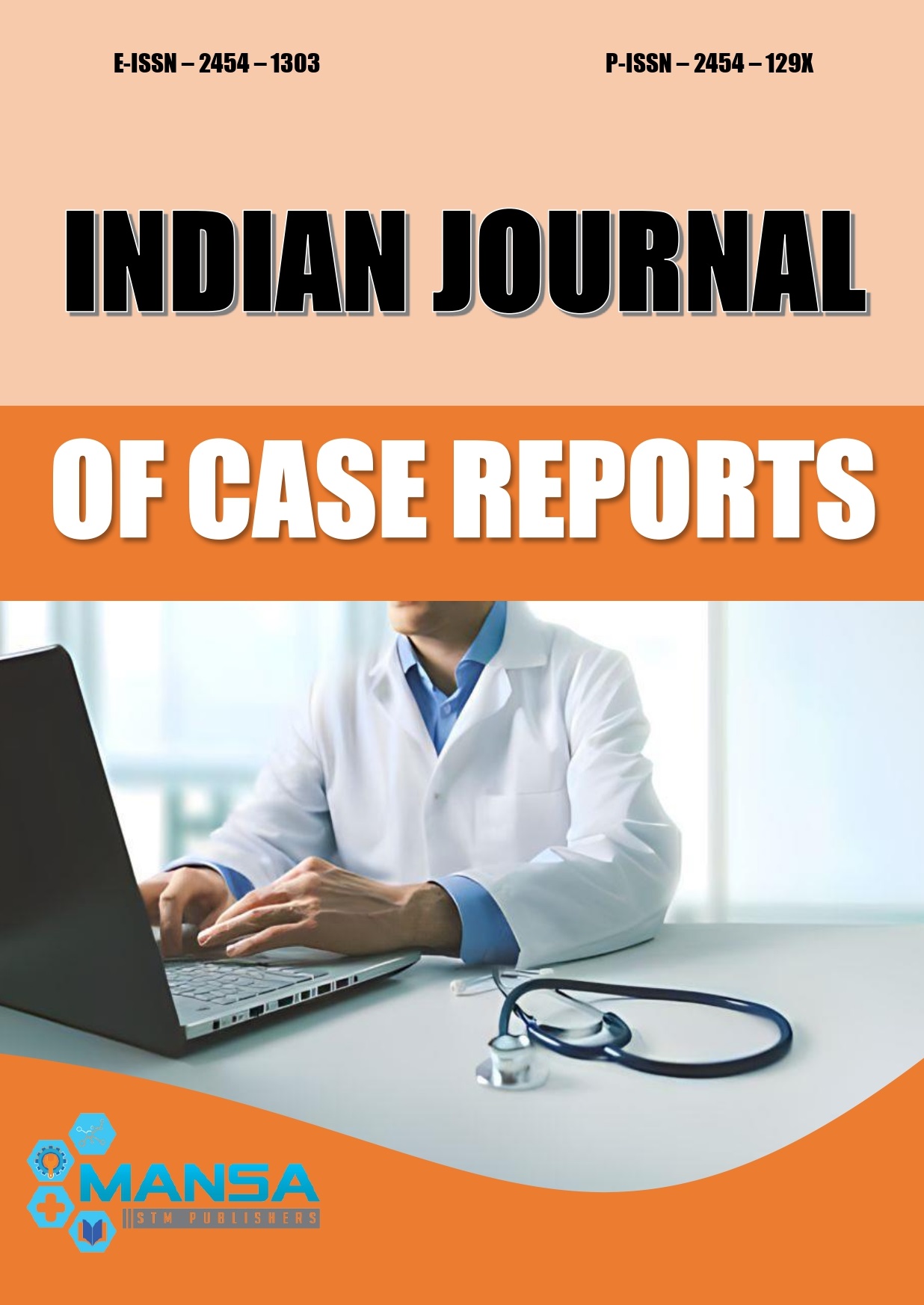Graves’ encephalopathy – A case of steroid-responsive organic psychosis
DOI:
https://doi.org/10.32677/IJCR.2020.v06.i06.019Keywords:
Autoimmune, Encephalopathy, Graves’ disease, Hashimoto’s encephalopathy, Psychosis, Steroid responsive psychosisAbstract
Thyroid disorders are frequently associated with neurological manifestations affecting either the central or peripheral nervous system. We present the case of a 35-year-old female patient presenting with acute onset neuropsychiatric manifestations in the form of abusiveness, aggressiveness, hallucinations, and disorientation. Further, imaging of the brain was normal and cerebrospinal fluid examination showed normal cellularity, protein, and glucose composition and an absence of common autoimmune and paraneoplastic antibodies. Additional testing in this young, thin female revealed showed a marked imbalance in thyroid function test with thyroid-stimulating hormone level <0.005 mU/L, free T3 of 680 pg/dl, and free T4 of 3.2 ng/dl and colossal level of >1300 U/ml of thyroid peroxidase antibody (Anti-TPO). A diagnosis of Encephalopathy Associated with Autoimmune Thyroid Disease (EAATD) was considered, with newly diagnosed Graves’ disease (GD). She was promptly started on high dose steroid therapy and recovered dramatically. Classically, EAATD is thought to be associated with Hashimoto’s thyroiditis, but patients with GD can also present with it, with almost similar clinical, immunological, radiological, electrophysiological, and therapeutic manifestations. Our case and subsequent discussion highlight this rare neurological presentation in a patient with previously undiagnosed GD.

